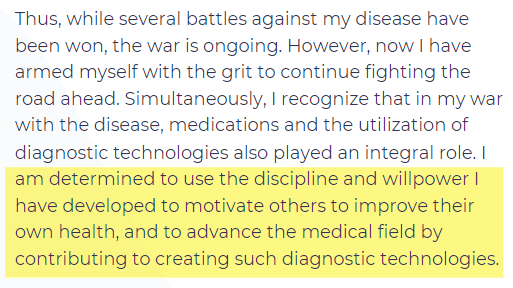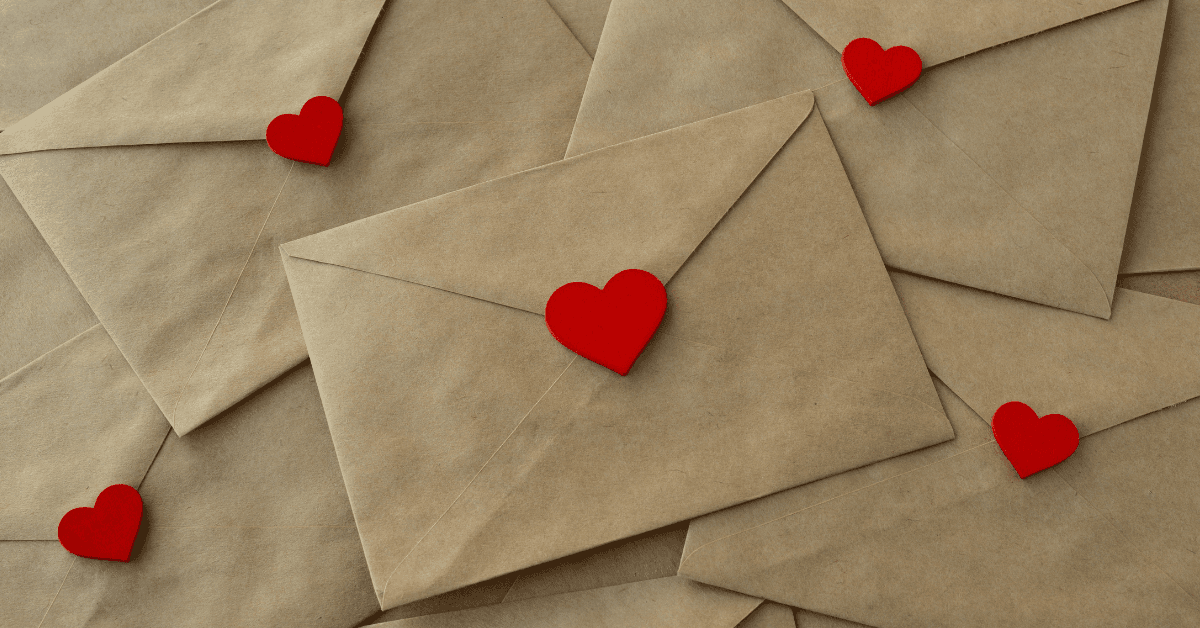US Personal Statement Examples from Students in Singapore

Summary
Personal statements play a vital role in US university applications. Essentially, they're essays that allow you to convey your unique identity beyond your grades and academics. It’s your chance to showcase key attributes like who you are as a person, your values, and what makes you tick! After all, these universities are eager to find out whether you’re the perfect fit. But in a fiercely competitive landscape, how do you craft a compelling yet concise personal statement? Discover how to make your personal statement stand out with expert advice and examples from students in Singapore!
Personal statements play a vital role in US university applications. Essentially, they're essays that allow you to convey your unique identity beyond your grades and academics. It’s your chance to showcase key attributes like who you are as a person, your values, and what makes you tick! After all, these universities are eager to find out whether you’re the perfect fit. But in a fiercely competitive landscape, how do you craft a compelling yet concise personal statement?
Discover how to make your personal statement stand out with expert advice and examples from students in Singapore!
The US Personal Statement
In the US, the majority of college applications are processed through the Common Application, a universal system for college applications. However, it's essential to note that there are separate portals for UC universities and other college-specific applications. For the purpose of this blog, we will focus on the Common Application. Typically, students will write one personal essay as part of the Common Application, widely accepted by many universities. You can choose from various prompts. Here’s an example: “Reflect on a time when you questioned or challenged a belief or idea. What prompted your thinking? What was the outcome?”
Additionally, some institutions may also request supplemental essays, each with its unique prompt.
Supplemental Essays
As mentioned above, some universities require extra essays, called supplemental essays, in addition to the personal essay you submit through the Common Application. These essays are important because they help Admissions Officers get a better understanding of who you are beyond the basic application.
The purpose of these supplemental essays is to uncover more about you that may not be in other parts of your application. They should not repeat information already provided, but rather add new insights. Admissions Officers use them to build a more complete picture of you as an applicant.
Here’s an example of a supplemental essay prompt from Cornell University’s College of Engineering: “Describe an engineering problem that impacts your local community. This could be your school, neighbourhood, town, region, or a group you identify with. Describe one to three things you might do as an engineer to solve the problem”.
US Personal statement example from a student in Singapore
Take a look at this personal statement sample from one of our Crimson students that got into University of Berkeley, Michigan, and UCLA!
I stared at the alluring piece of red-velvet cake on the counter table. The aroma of the thick cream cheese frosting wafted through the air, creating an overwhelming temptation. As I crept up to the cake, eyeing it like the Gollum coveting his “precious,” I was hit by a conundrum. Were the few moments of immense pleasure worth compromising my hard work? Were they worth forgoing my health? I thought about how, if they were, I would not have been surreptitiously approaching the cake so no one else could see me. After thorough contemplation, I decided to suppress my temptation and distract myself by playing the jazzy Blue Bossa on the keyboard, escaping its gravitational pull.
The longest war in my life has been against asthma, which I developed at the young age of 5. I suffered an attack at least once every few months and had to receive repeated midnight hospital nebulizations. However, I never realized the gravity of this disease in my youth and was only concerned about the worry that flooded my parents' faces every time we rushed to the hospital.
In 2016, a few hours after landing in Spain, an intense breathlessness overcame me, worsening by the second as my pump was rendered ineffective. We quickly rushed to a hospital, but to our misfortune, the doctors had a limited understanding of English. I lay down gasping for air as my parents struggled to communicate with them, but luckily the doctors understood my symptoms, and I was efficiently treated for the most severe asthma attack of my life. Yet, the severity of the attack and its negative impact on the rest of my holidays led me to become cognizant of the constant danger my asthma posed.
Consequently, I had finally taken the initiative to combat my ailment by listening to my doctor's recommendation to reduce weight so that the strain on my lungs would decrease. Hence, I adopted a strict diet and began a regular exercise routine (to improve lung function). However, inculcating these changes was no easy feat, owing to my terrible sweet tooth. Only over time, with repeated self-reminders of the possible consequences, was I able to develop the focus I needed to overcome my temptation and succeed at my grilling regimen.
My efforts over two years paid off. Not only did my actual versus expected lung capacity increase from 60% to 90%, but I am also now equipped with intense discipline and determination. Previously, my signature advantage of quick learning was always offset by my tendency to get distracted to the point that my mother claimed that, for me, learning up to 90% of anything was a cakewalk, but the last 10%, utterly impossible. However, the tenacity and focus I developed through adhering to my strict health regimen have allowed me to grasp even that last 10%.
In academics, this enabled me to not only excel in examinations but understand the underlying logic of topics and move beyond the prescribed syllabus. These qualities have also been applicable in various interests, from music to debate to photography. In photography particularly, where my poor hand-eye coordination previously occasionally led to the subjects of my images blurring into the background, the control I developed enabled my continuous practice furthering my hand dexterity through simple acts such as chopping vegetables, sewing, and hand exercises. Through this, I have sharpened my skills in the art.
Thus, while several battles against my disease have been won, the war is ongoing. However, now I have armed myself with the grit to continue fighting the road ahead. Simultaneously, I recognize that in my war with the disease, medications and the utilization of diagnostic technologies also played an integral role. I am determined to use the discipline and willpower I have developed to motivate others to improve their own health, and to advance the medical field by contributing to creating such diagnostic technologies.
5 expert tips on how to write the perfect personal statement for US universities
In this section, we’ll take a deeper dive into personal statement writing with a list of tips and examples (from our students) that have secured admission to US universities.
Tip #1: The prep phase
Begin early and plan ahead! It may be intimidating to start writing and you may be unsure of how to approach it. As such, try breaking the process down. Allocate some time to plan what you intend to write. You can draw up some mind maps or venn diagrams to visualise the interesting topics in your life and how they are connected.
Treat it as a brainstorming session so be as comprehensive as possible. Jot down your interests, motivations, and qualities that make you a good fit. While not all points will make it into your personal statement, this exercise will prove invaluable later on. Subsequently, highlight the key pointers so you’ll have a rough outline to refer to.
Tip #2: Structuring your personal statement
Organising your personal statement effectively is crucial as they can differentiate higher quality essays from the weaker ones. With an unstructured essay, it’s easy to get carried away and lose sight of your topic. Note that a personal statement is not meant to list your accomplishments or recount your life story, it needs to be more focused.
Here’s a tip from our Senior Strategist and Harvard graduate Gabe Gladstein: “a proven format that’s worked for thousands of our students is the Three Step Experience format”. First you write about an experience from your life that is meaningful to you; then you talk about what you learned from that experience; and finally, you talk about why what you learned matters to you, connecting it to who you are now and who you aspire to be in the future.
Tip #3: Framing your passion
Highlighting your passion in your personal statement is a great way to let the reader know more about you. Remember to be selective though, as it’s unnecessary to mention every passion in your essay. Afterwards, ensure that they’re woven seamlessly into your narrative without making it sound like an afterthought.
Pay attention to how your passion has impacted you and your outlook on the world. It's more important to highlight how your perspectives on your passion have changed over time than the passion itself. When used well, these insights can become strong focal points for your narrative.
Tip #4: Extracting some insight
There’s a recurring theme emerging if you’ve noticed: the importance of extracting insight. Your life events and passion aren’t as relevant to the Admissions Officers (AO) reading your personal statement unless you reflect deeply. Therefore, draw connections between different elements in your essay and try to relate them with one another in the entire narrative. Your goal is to highlight the depth of your maturity rather than its breadth!
Start by reflecting on those experiences. Ask yourself key questions like “what changed, and why” and “in what way did that event make me a better person?” If you’ve made a mistake, “how did they lead you to learn more about yourself?” Answer them honestly and piece them into your essay. The key here is to connect them with your journey of personal development.
Remember, this is a personal statement not a generic essay. It should be written authentically as a true reflection of yourself. Don’t be afraid of genuinely reflecting on your experience. Be original, avoid purely writing what you think the universities want to read as though it’s a checklist.
Below is an illustration of how a student connected a personal tragedy with its impact on her outlook on life.


Tip #5: Closing with impact
How you conclude your personal statement is also important as they’re highly likely to leave a lasting impression on the AOs. A strong conclusion should be specific, memorable, and effectively tie your personal statement together!
What is the bigger picture that you want your reader to take away? Try connecting the key points you’ve made to your future plans.
To strengthen your conclusion, you should demonstrate maturity and introspection. Reflect on how despite your experiences, you’re continuously striving for self-improvement to become the best version of yourself. On that note, avoid suggesting that you’ve already learned everything whether it’s about yourself or a subject matter. You want to steer clear of coming across as arrogant from the AOs. After all, there’s always room for learning and growth regardless of your age.
The following excerpt serves as a great example of a conclusion with a forward-looking ending that connects his personal growth with his motivation to aid others.


Final Checks
Congratulations on finishing your personal statement! You’re left with a few final checks before you’re finally ready to submit it. Our best tip? Keep re-reading it. Cross check with your outline to see if you’ve missed out on any key points. Have they been clearly and effectively conveyed within the word limit? Are they relevant to your main point?
Check your personal statement meticulously for any spelling or grammatical errors. Such errors can be quite jarring for the reader and don’t send a good signal. Here, proofreading tools are your best friend. Try reading it out aloud as well as it can make a difference. It’ll help you spot any errors that you might have missed and evaluate how it sounds overall.
Try to get an outsider’s perspective on your personal statement. Share it with your friends, family or teachers and ask them for feedback. A fresh pair of eyes offers new perspectives and can help uncover any mistakes or biases.




